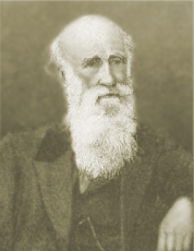La Decena Trágica may have been far away from Europe when it brought in 1913 the Mexican Revolution. Europe had to meet its tragic decennial a year later.
The House of Romanov in 1913 celebrated its 300th anniversary of its succession to the throne, amidst an outpouring of monarchist sentiment in Russia, but they also had to face their end a few years later.
Greece saw in 1913 during the First Balkan War, after Greek troops had occupied much of Greek Macedonia, the assassination of King George I of Greece, after 50 years on the throne. He was succeeded by his son Constantine from 1913 to 1917 and from 1920 to 1922.

Greek lithograph depicting the assassination of King George I of Greece at Thessaloniki on 5/18 March 1913 (Photo credit: Wikipedia)
On June 13, 1913 the Deutsches Stadion in Berlin was dedicated with the release of 10,000 pigeons, in front of an audience of 60,000 people. It had been constructed especially for the 1916 Summer Olympics, which were cancelled as a result of World War I.
At the end of the 19th century several people started looking more into the reasons of our being and how the world was to develop. The Austrian philosopher, social reformer, architect, and esotericist Rudolf Joseph Lorenz Steiner also tried to find a synthesis between science and mysticism. Personal freedom was a very important facet of building up the life of the individual which had to become part of one greater element. For him and his followers the evolution and essential being of humanity were connected with each other.
His Anthroposophical Society, founded on February 3, 1913, grew rapidly, and the followers in Germany got to know the Creator of all things.
In the New World the old adventurers had taken their most precious Book with them to bring a seed of people who started to study those Scriptures thoroughly. In the 19th century, more and more Bible students found their way into the Scriptures and got to see that many promises made in the Old times became realised. So other promises of God did have to come through as well. They got to follow how everything told in those old writings fitted with what happened in history. They got to understand what was written about a terrible thing going to happen very soon. The prediction what was going to happen in 1914 frightened at first many people but when the year had started and that terrible World War did not come, many lost faith and started to laugh at those Bible-students which had talked so much about the trouble that would come over the world. When several converted believers turned away form the new faith they were taken by surprise at the end of the year 1914 when at last the prophesy became reality.
History seems to repeat. Today lots of people do not want to see the many signs in the world which are described in the Bible. They do feel very comfortable and like all the chit-chat which is going on endlessly in the internet world of social networks. Most of the time, people prefer to compare the wealth of others and think all the material gain will help them to have a better life. They are blinded by their materialism. They do not want to know about the prophesies made in the Holy Scriptures and laugh with those who believe in those old writings. For the first time in history we may find three generations after each other who have not been hid by the terror of war directly.
Though wars have not disappeared from the sight, we encounter the first three generations which did not have to face the terrible happenings at first hand. It has been far from their bed. The big television screen projects daily the the abhorrence in the living room, but they do think the horror is only something that shall not reach them, because they can enjoy all the luxury of the modern world.
One of Europe’s most senior politicians, Jean Claude Juncker, prime minister of Luxembourg, who chaired a group of Euro-zone finance ministers at the height of the financial crisis, has issued a warning that peace was being taken for granted on the continent and that its current troubles were chillingly similar to those in the run up to World War I.
He is not suffering from withdrawal symptoms and thinks he has a balanced state of mind, though his life has become less hectic and he’s calmer and more relaxed.
Juncker says:
Demonstrators clash with riot police during a protest against the visit to Greece by Germany’s Chancellor Angela Merkel in Athens on October 9, 2012. One of Europe’s most senior politicians has issued a warning that peace was being taken for granted on the continent and that its current troubles were chillingly similar to those in the run-up to the First World War.
Photograph by: Milos Bicanski , Getty ImagesFor my generation, the monetary union has always been about forging peace. Today, I notice with a certain sense of regret that far too many Europeans are returning to a regional and national mindset.
The way some German politicians have lashed out at Greece when the country fell into the crisis has left deep wounds there. I was just as shocked by the banners of protesters in Athens that showed the German chancellor in a Nazi uniform. Sentiments suddenly surfaced that we thought had been finally relegated to the past. The Italian election was also excessively anti-German and thus un-European.
When we look at the many problems which the world encountered in the years 1913, 1920, 1929 up to the 1940ies with the worldwide economic depression in the decade preceding World War II, we can find many parallels with the contemporary situation.
In Belgium in the 1980ies they talked already of crisis. First people only saw the financial difficulties with the many unemployed. Then more and more factories started showing nice gainings but closed their plants, putting many thousands of labourers and employees on the streets.
In the 21st century, the Great Depression is commonly used as an example of how far the world’s economy can decline. Also today we see the heavy industry being hit hard. Today we do find a bonus in the corruption which has become a worldwide sport. Today people still think the Great Depression was the longest and most severe economic depression ever experienced by the Western world. Monetary policy mistakes and adherence to the gold standard, led to much-reduced levels of demand and hence of production, resulting in high unemployment (by 1932, 25–30%). This time it was the profit banks wanted to make on the housing and comfortable living hope of many workers.
Today because of the corruption of so many politicians and CEO’s the idea of economic stability is far gone.
In 1913 the great powers of the Continent were economically so strongly intermeshed that there was the widespread opinion that they could simply no longer afford to engage in military conflicts.
Primarily in Western and Northern Europe, there was a complete sense of complacency based on the assumption that peace had been secured forever.
Juncker warns us to be careful and not to enjoy the luxury idea of secured peace in Europe. Elections in Italy and Greece brought “national resentments to the surface, which we’d believed had gone away says Jean Claude Juncker, who was appalled by protesters’ banners in Greece which showed Angela Merkel, the German chancellor, in Nazi uniform.
In an interview with the magazine Der Spiegel Juncker said:
“Anyone who believes that the eternal question of war and peace in Europe is no longer there risks being deeply mistaken. The demons have not gone away — they’re only sleeping, as the wars in Bosnia and Kosovo showed. I am chilled by the realisation of how similar circumstances in Europe in 2013 are to those of 100 years ago.”
The Balkan Wars were two conflicts that took place in the Balkan Peninsula in south-eastern Europe in 1912 and 1913 and brought the same countries in conflict we saw a few years ago fighting again: Greece, Macedonia, Montenegro and Serbia.
In 1913 the new radio tower in Berlin brought the Old World in wireless contact with the New World. New York was closer now to Berlin like to day many cities have become very close on the internet social networks. Today many are twittering and chit-chatting about small things and not many are willing to invest enough time to read serious articles. Lots of magazines about fashion and so called stars bring the new gods of today in the spotlight. But the major and oldest Blogger in the world most people do not know or do not want to know.

1913 Experimenting with mounting body on Model T chassis. Ford tested various assembly methods to optimize the procedures before permanently installing the equipment. The actual assembly line used an overhead crane to mount the body.
On August 16 hundred years ago Ford Motor Company adopted the assembly line to mass-produce the Model T. this same company who made billions of profits did not shame itself to take in all the funds from the Belgian government, promising to have work until 2020 for the people of Limburg but only a few months further closing the plant in Genk.
In September 1913 there was a terrible cholera epidemic. The sixth pandemics raged from 1899-1923. Today Europe has become ill and has outgrown the seasonal disease. The general sewage has become the corruption in the political and economical world. Thinking of those in charge many civilians have to vomit. Lots of people are disgusted by the politics and the way the industry and financial markets are behaving. They get an anti political attitude which becomes dangerous for free-warding the democratic system.
Many people do not want to hear the voices of the heads of government of Germany, France and the United Kingdom speaking through the megaphone of the European Union, which starts trembling on its financial underground.
According to Der Spiegel the only problem is that a firm commitment to Europe and the monetary union doesn’t pay off politically because it demands unpopular reforms. At the height of the Euro crisis.
Juncker does not seem too pesimistic because he finds that they managed to keep Greece in the Euro zone and the Union managed to introduce bailout mechanisms for the monetary union and established a European banking union.
Nevertheless, I am concerned that the temporary calm on the financial markets could weaken the will for renewal. It would send the completely wrong signal if the fear of reforms were to spread throughout Europe again.
…
The results of the Italian election are widely interpreted as an across-the-board rejection of the euro, but there are also other factors at work here. Beppe Grillo has primarily made a name for himself as a critic of his country’s political class, while Silvio Berlusconi has promised to lower taxes. By contrast, the party that ran the most vehemently anti-euro campaign, the Lega Nord, lost many of its voters. Consequently, I don’t see the Italian election result as primarily a vote against the euro and the European reform policy.
Italian Prime Minister Mario Monti might have had created a Europe-friendly course, the Italian majority did not agree with his efforts to safe both the country and the European Union.
Juncker warns us that those who intend to govern have to take responsibility for their countries and for Europe as a whole. “This means, if need be, that they have to pursue the right policies, even if many voters think they are the wrong ones.”

Jean-Claude Juncker Prime Minister of Luxembourg in Justus Lipsius (Brussels, Belgium) (Photo credit: Wikipedia)
The consequence of the Italian election result cannot be that we suddenly return to the policies that caused this mess. It is not possible to combat the financial and economic crisis by saddling an already heavily indebted state with new debts. There is no getting around a solid budgetary policy.
For Juncker the question of whether the Euro will survive does not arise, but we should at least be very careful to make the right choices and do not feel too secure that it would be impossible that there would come a severe clash between undemocratic organisations, extreme right wing groups, those who want to have their own small community again and the ones who belief in a growing strong Europe.
+
Asimilar article in Dutch / Een gelijkaardig artikel in het Nederlands: Juncker waarschuwt voor nieuwe oorlog in Europa
Read also:
- Jean-Claude Juncker Interview: ‘The Demons Haven’t Been Banished’
- A Voice to be heard
- Signs on the earth and in the skies
- Belief of the things that God has promised
- God’s promises in our suffering
- Creator and Blogger God 1 Emptiness and mouvement
+++
Related articles
- La Decena Trágica and the Saudi Arabia of 1913 (endallwar.wordpress.com)
The Times of London has come out with one of its periodic editions featuring in-depth coverage of key issues of the day, no doubt considered within an “imperial” perspective.
+Collective Note from the Great Powers to Constatinople We learn from the pages of the Times of London that “Fortunately for China, her people are good traders and agriculturalists, but bad revolutionaries”. As with Mexico and the Balkans, the new century was to prove quite the opposite concerning the story of China. Another current item is the presentation of the “Collective Note of […]
+London Peace Conference Enters Critical Phase The First Balkan War ended temporarily: Bulgaria, Greece, Montenegro, and Serbia (the Balkan League countries) signed an armistice with Turkey China defaulted on its payment under the Boxer Indemnity Agreement, arising from damages to the eight powers during the Boxer Rebellion of 1900 A variety of activity on the part of all protagonists is happening […]
+
Se Empiece La Decena Tragica en Mexico+
“Our Destiny to Be Imperial”+
Balkan Belligerents Withdraw From London Peace Conference - Jean Claude Juncker: Europe’s demons are only sleeping (endtimebibleprophecy.wordpress.com)
Mr Juncker also claimed that the only way for Europe to continue to wield global influence in future was through being united. The governments of Germany, France and Britain all knew that the only way their voice could be heard internationally was “through the megaphone of the EU,” he said. - Jean Claude Juncker: Europe’s demons are only sleeping (telegraph.co.uk)
Almut Moeller, a European Union analyst at the German Council on Foreign Relations, a think tank, suggested that the veteran European politician was using the imagery of war to draw attention to the scale of the economic crisis.Mr Moeller said: “He’s somebody who wants to address this [the euro-crisis] in a political way, not just in a technocratic way. There is a huge transformation in society, which we’ve seen in the most vulnerable countries. In that sense he wants to sound a warning, that this is a big job for politicians. What he means is, let’s try to understand that the military power of the past is now economic power.” However, his dramatic evocation of the past has also prompted some derision.Tim Rahmann, a commentator for the weekly business magazine WirtschaftsWoche, said: “Nonsensical comparisons, exaggerations and slogans do not help to reform the European Union. On the contrary they only lead to the EU and its leaders losing credibility.”
Meanwhile, a poll published on Monday indicates growing German unease over the cost of the euro crisis. One in four Germans would vote in September’s federal election for a party that wants to quit the euro, according to an opinion poll conducted by TNS-Emnid for Focus magazine.
+Germany’s anti-euro party is a nasty shock for Angela Merkel
+
‘They come to look for a better life. But someone must pay for that’ - ‘The Monetary Union has Always been about Forging Peace’ (economistsview.typepad.com)
Jacques René Giguère said… War? No. The economies are too intertwined ( though the same was said a century ago). Tourism and travel ( plus student’s exchange and combined military units ) have produced a sense of unity that is real , even no one think of himself as an european citzen.
But unraveling of the union? Yes. After 50 years of prosperity, EU is seen not as meddling buffoons who quible about the shape of cucumbers but as a darkly negative force hell-bent of destroying all the good achieved until now.
And it doesn’t help the the dark force is prolled by Germany. It is disturbing to hear that Germany won’t lose its third chance to destroy Europe… - The Ultimate Threat In The Euro Bailout and Austerity Racket: War (zerohedge.com)
There have been waves of threats by Eurozone politicians to bully people into accepting “whatever it takes” to keep the shaky construct of the monetary union glued together. These threats peaked last year with disorderly default, and when that wasn’t enough, with the collapse of the Eurozone. But now, the ultimate threat has been pronounced: war.
+
The ECB and the national central banks of the Eurozone set out to collect information on household wealth. A massive bureaucratic undertaking. Results are now ready. No one in Europe had ever done a survey on that scale before. And no one might ever do it again. Because the results are so explosive that the Bundesbank is keeping its report secret—and word has leaked out why. Read…. A “Politically Explosive” Secret: Italians Are Over Twice As Wealthy As Germans. - Juncker says don’t underestimate Cyprus issue (ekathimerini.com)
“One should not underestimate the Cyprus problem,» the ex-Eurogroup head told Austria’s Kleine Zeitung in an interview published on Wednesday.”If we don’t definitively solve the problem case of Cyprus, there is a contagion risk even from this very small national economy,» he said. «Time is pressing on.” - Eurogroup bids farewell to mercurial Juncker, heralds new era – Reuters (reuters.com)
the grey-haired Juncker, 58, handed the reins of the Eurogroup to a polished 46-year-old Dutchman, promising a new approach to how economic policy among the 17 euro zone countries is shaped and decided.After a 16-1 vote, the finance ministers named Jeroen Dijsselbloem, an Irish-educated social democrat with flawless English, to succeed Juncker, a Luxembourger who had headed the group for eight years.
+“If the Eurogroup hadn’t existed before the crisis, someone would have had to had invented it,” said Andre Sapir, an economist at Brussels-based think tank Bruegel.
Privately, EU diplomats and officials hope Dijsselbloem, who has won plaudits for his conciliatory and straightforward style, will help restore a sense of discipline.
- Euro Exchange Rate Is ‘Dangerously High,’ Juncker Says (bloomberg.com)
The euro’s 8 percent gain against the U.S. dollar in the past six months is posing a fresh threat to the European economy just as it shows signs of escaping the debt crisis, said Jean-Claude Juncker, who leads the group of euro-area finance ministers.Echoing policy makers from Switzerland to Japan in bemoaning strong exchange rates, Juncker late yesterday called the euro’s value “dangerously high” after the 17-nation currency this week traded above $1.34 against the dollar for the first time since February last year. - Juncker Takes Euro Act Offstage in Handoff to Newest Minister – Bloomberg (bloomberg.com)
Luxembourg Prime Minister Jean- Claude Juncker, Europe’s most seasoned politician, was either making up policy on the hoof or had blurted out a decision that was supposed to be secret.Briefing reporters close to midnight on Nov. 12, Juncker mumbled that Greece’s debt-reduction timetable was being extended to 2022 from 2020. The ad-lib earned an instant rebuke from International Monetary Fund chief Christine Lagarde. It also hastened moves to push him out of the job as chairman of the group of 17 euro finance ministers, two European officials said. - The Ultimate Threat In The Euro Bailout and Austerity Racket: War (blacklistednews.com)
Last August, as he was jabbering about Greece’s potential exit from the Eurozone, he lamented that “many Germans and the German media” talked about Greece as if it were “a people you couldn’t respect,” and that Greeks depicted Chancellor Angela Merkel as if she were “the heiress of the Nazis.” And then his big threat, albeit in veiled form: “What we thought had been buried long ago, very quickly rises again.”His problem: the halting integration of Europe. European countries were small, but there was a solution. “We must show the world something giant, and that’s the euro,” he said. He wanted Europeans to integrate more closely. And not just within the EU, but “the total continent, with extensions”—so maybe Turkey. They’d all eventually use the euro. And if it didn’t work out….

































 Biblestudents – Bijbelstudenten
Biblestudents – Bijbelstudenten 0 + Bloggers for Peace
0 + Bloggers for Peace Free Christadelphian Ecclesia
Free Christadelphian Ecclesia Hoop tot Leven – Redding in Christus
Hoop tot Leven – Redding in Christus Vrije Broeders in Christus (Free Flemish Christadelphians on Wordpress)
Vrije Broeders in Christus (Free Flemish Christadelphians on Wordpress)















Pingback: Preparing for an important election | Marcus' s Space
Pingback: August 4, 1914 to be remembered | Marcus' s Space
Pingback: August 4, 1914 to be remembered | Marcus' s Space
Pingback: Liège 2014 remembering the Great War | Marcus' s Space
Pingback: Mons 2014 remembering the Great War | Marcus' s Space
Pingback: Not true or True Catholicism and True Islam | Marcus' s Space
Pingback: Reflections on the Great War #1 | From guestwriters
Pingback: Reflections on the Great War #2 | From guestwriters
Pingback: Islamic State pushing at an open door to divide Europeans | Marcus Ampe's Space
Pingback: Massive police operation in northern Paris suburb of Saint-Denis | Marcus Ampe's Space
Pingback: Blinded crying blue murder having being made afraid by a bugaboo | Bijbelvorser = Bible Researcher
Pingback: The Somme (1916) Working Class Holocaust | From guestwriters
Pingback: July 4, 1916 – Battle of the Somme greeted with ‘the greatest enthusiasm’ | From guestwriters
Pingback: The Great War changed everything | Marcus Ampe's Space
Pingback: The War to end all wars | From guestwriters
Pingback: Why are we killing? | From guestwriters
Pingback: Anatomy of a World War I Artillery Barrage | Marcus Ampe's Space